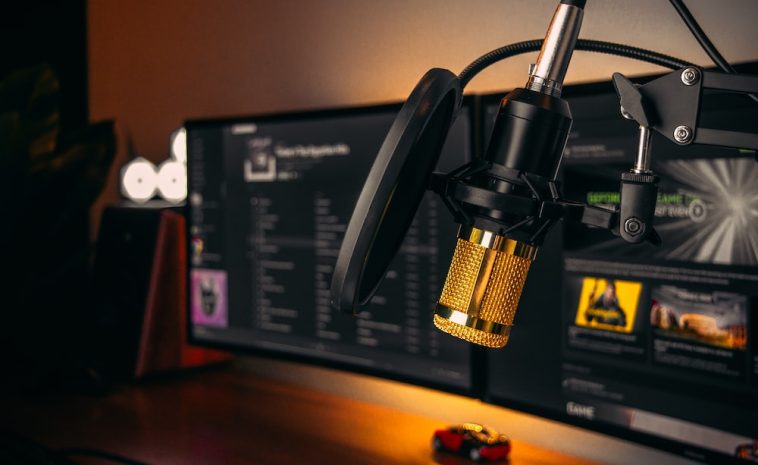Introduction.
Starting a podcast is exciting, but let’s face it—running one comes with costs. From equipment and hosting to software, everything adds up quickly.
One of the best ways to offset these expenses and even make a profit is by landing podcast sponsors.
But how exactly do you go about finding brands willing to sponsor your episodes? And how do you know if your show is even ready for sponsors?
In this guide, I’ll cover everything you need to know about getting sponsors for your podcast.
I’ll walk through when to start seeking sponsorships, how to find the right partners, what sponsors typically look for, and how to pitch yourself effectively.
Let’s get into it!
How Do I Get Sponsors For My Podcast?
1. Is Your Podcast Ready for Sponsors?
Before reaching out to sponsors, it’s essential to know if your podcast is sponsorship-ready. Generally, sponsors look for a few key things:
- Audience Size and Engagement: While there’s no universal “minimum” audience size, most brands are looking for at least a few thousand listeners per episode.
- Consistency: Publishing episodes regularly—whether weekly, bi-weekly, or monthly—demonstrates reliability. Sponsors want to know they’re partnering with a podcast that’s in it for the long haul.
- Defined Niche: Sponsors often look for podcasts that align with their target audience, so having a clear niche can work in your favor, even if your listener count is on the lower end.
2. Types of Podcast Sponsorships
Knowing what kind of sponsorship you’re looking for is helpful when you start pitching. Here are a few popular types:
- Pre-Roll Ads: Ads that play at the beginning of the episode, usually around 15–30 seconds long.
- Mid-Roll Ads: Ads placed in the middle of the episode, typically lasting around 60 seconds. These are usually the most valuable as listeners are already invested in the episode by this point.
- Post-Roll Ads: Ads at the end of the episode. They’re usually shorter, around 15–30 seconds, but tend to be less expensive since some listeners drop off before the end.
3. How To Find Sponsors For Your Podcast
So, where do you start looking? Here are a few methods to consider:
1. Approach Brands Directly
If there are brands you love and think would be a good fit for your audience, reach out! Tailor your pitch to explain why your podcast is a good match for their products and audience.
2. Podcast Networks
Joining a podcast network can open up access to sponsorship opportunities. Networks often work with brands and have a roster of podcasts to pitch for ad spots. Just keep in mind they may take a cut of the revenue.
3. Affiliate Programs
If traditional sponsorship feels out of reach, affiliate marketing can be a good stepping stone. Many brands have affiliate programs, allowing you to earn a commission for every sale generated through your unique link.
4. Sponsorship Marketplaces
Several online platforms connect podcasters with sponsors. Some popular options include:
- Podcorn: Allows you to browse sponsorship offers from brands and submit pitches.
- AdvertiseCast: Acts as a middleman between podcasts and brands, handling negotiations and contracts.
- Gumball: Especially good for matching niche podcasts with relevant sponsors.
4. Crafting Your Pitch to Sponsors
Once you’ve identified potential sponsors, it’s time to pitch. Here’s what to include in a pitch:
- Introduction: Briefly introduce yourself and your podcast, including any relevant stats (e.g., average downloads, social media following).
- Audience Demographics: Highlight key audience insights like age, location, and interests. This helps brands understand if you’re reaching the people they want to target.
- Sponsorship Package: Describe what the sponsor will receive, whether it’s a pre-roll ad, mid-roll ad, or sponsored segment.
- Previous Success Stories: If you’ve worked with sponsors before, share a quick example of the positive results they achieved.
- Contact Details: Make it easy for them to reach out with questions or express interest in your proposal.
5. How Much Should You Charge for Podcast Sponsorships?
Determining your rates can be tricky, but a common approach is to charge based on CPM (Cost Per Thousand Impressions), which can range from $18–$50 depending on your niche and audience engagement.
For example, if you have 5,000 listeners per episode and you charge $25 CPM for a mid-roll ad, your rate would be:
5 (thousands of listeners)×25 CPM=$125 per ad5 \text{ (thousands of listeners)} \times 25 \, \text{CPM} = \$125 \, \text{per ad}
If your audience is highly engaged or within a lucrative niche, you might be able to charge a premium.
Pros and Cons of Getting Podcast Sponsors
Pros:
- Financial Support: Sponsorships help cover costs and can generate profit.
- Credibility: Working with reputable brands can add credibility to your podcast.
- Audience Engagement: Relevant sponsors can create extra value for listeners, making your podcast more engaging.
Cons:
- Creative Constraints: Sponsors may want control over ad copy or content structure.
- Audience Perception: Too many ads or irrelevant sponsors can frustrate listeners.
- Time-Consuming: Searching for sponsors and negotiating terms can be time-consuming, especially without a dedicated team.
FAQ
1. Do I need a large audience to get sponsors?
Not necessarily. Some sponsors are more interested in targeting a niche audience than just big numbers. However, having at least 1,000–5,000 downloads per episode can make you more attractive to most sponsors.
2. How much can I realistically make from sponsorships?
This varies widely based on your audience size, CPM, and ad frequency. With a strong, engaged audience and regular ads, it’s possible to earn a few hundred to several thousand dollars per month.
3. Can I have multiple sponsors on one episode?
Yes, but make sure not to overload the episode with ads, as that can turn off listeners. Some podcasters include one pre-roll, one mid-roll, and one post-roll ad per episode to strike a balance.
4. What if I can’t find a sponsor?
Consider affiliate programs, donations from listeners, or paid memberships as alternative revenue streams. Platforms like Patreon or Buy Me a Coffee can help monetize your audience directly.
Wrapping Up
Getting sponsors for your podcast takes time, strategy, and persistence, but it’s definitely achievable with the right approach.
Whether you’re reaching out directly to brands, working with affiliate programs, or joining a podcast network, there’s more than one way to make sponsorship work for your show.
Have you considered what kind of sponsors would best suit your audience?




GIPHY App Key not set. Please check settings